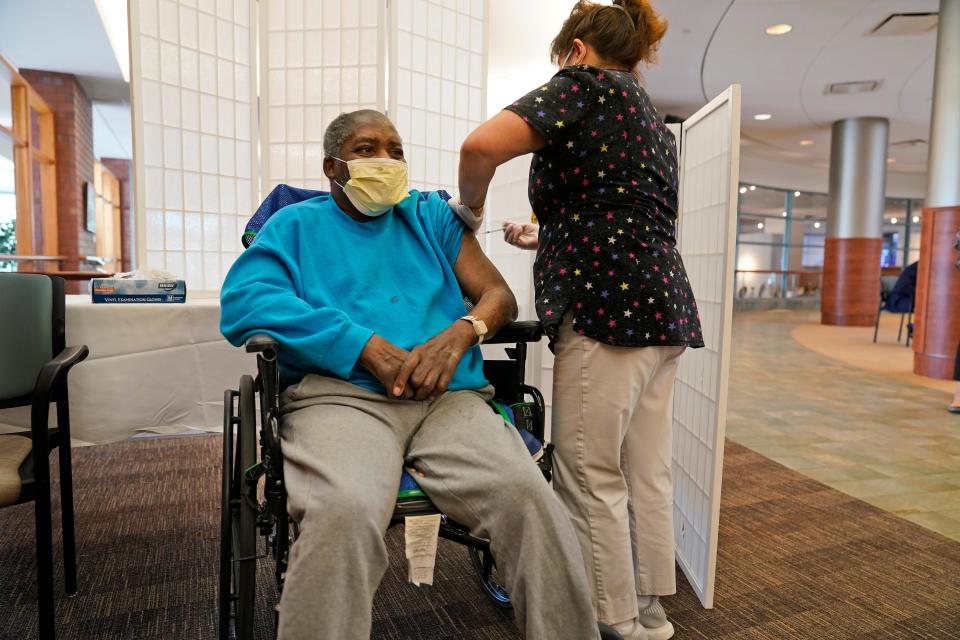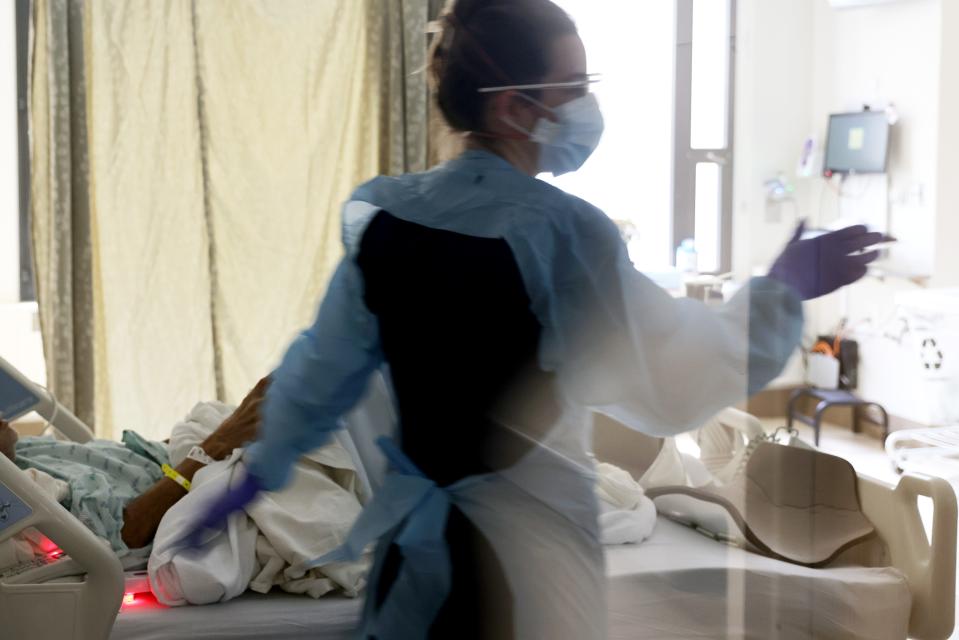New 'stealth' omicron variant, BA.2, has arrived in the US, but don't panic, experts say
Yes, a new variant of omicron is spreading on at least four continents. No, it shouldn't be a cause for panic, Massachusetts scientists said Tuesday.
Unlike two years ago when everyone was learning about COVID-19, there are many tools to combat the disease, and, like its cousin, omicron BA.2 is expected to remain relatively mild.
"I don't think it's going to cause the degree of chaos and disruption, morbidity and mortality that BA.1 did," said Dr. Jacob Lemieux, an infectious disease specialist at Massachusetts General Hospital in Boston. "I'm cautiously optimistic that we're going to continue to move to a better place and, hopefully, one where each new variant on the horizon isn't news."
'STAYING VIGILANT AGAINST THE VIRUS': Pfizer and BioNTech announce plans to test omicron-specific COVID-19 vaccine in adult trials
Early data suggests that BA.2 is even more transmissible than BA.1.
While COVID-19 rates have declined in areas like the Northeast, where BA.1 hit hard late last year, cases of BA.2 are on the rise worldwide. About 8% of cases in the U.S. are now likely to be BA.2, while in Denmark, which went through a BA.1 wave in December, 82% of infections are BA.2, according to Trevor Bedford, an expert in viral evolution at the Fred Hutchinson Cancer Research Center in Seattle.
It's not clear whether BA.2 is pushing out the original omicron variant, referred to as BA.1, he said.
In Denmark, BA.2 is rising as BA.1 falls, but case are split about 50-50, so "it's not clear which of these variants is driving the outbreak," Lemieux said.

In South Africa, where cases had fallen dramatically after a huge surge around Thanksgiving, BA.2 is more prevalent than BA.1.
"What we don't know and still have almost no information on is what impact this will have on case counts, on hospitalizations, on deaths," he said.
Scientists know very little about the transmissibility of BA.2 compared with BA.1, said Jeremy Luban, a professor of molecular medicine, biochemistry and molecular pharmacology at UMass Medical School.
'TIRED, BURNED OUT, FRUSTRATED': Omicron surge hits nursing homes as vaccine mandate looms
Lemieux, Luban and other medical experts made their comments Tuesday on a weekly call with news media organized by the Massachusetts Consortium on Pathogen Readiness.
It's too early to say whether BA.2 will escape the protection provided by vaccines or medications, Luban said.
The newer variant, like the original omicron, has lots of mutations, including about 20 in the region targeted by most vaccines. BA.2 has mutations not found in BA.1, which could limit the effectiveness of monoclonal antibodies, Luban said.
"We don't know what the significance of these mutations are going to be, especially in a population that has already encountered BA.1," Luban said, adding that BA.2 may acquire its own Greek name to distinguish it from omicron.
Many people caught omicron even after being infected with the delta variant, but it's not clear whether someone who caught omicron remains vulnerable to BA.2, said Dr. Daniel Kuritzkes, chief of the division of infectious diseases at Brigham and Women’s Hospital and a professor at Harvard Medical School.

T cells, the immune soldiers that seem to prevent severe disease after vaccination, will probably be effective against BA.2, said Dr. Bruce Walker, director of the Ragon Institute of MGH, MIT and Harvard, which focuses on immunology research.
"It's T cells that probably have a major effect on the disease course once somebody does become infected," he said. "It's encouraging that at least from the T cell side – they may not be protected from getting infected, but (vaccines) should help mitigate disease."
It's not known when or where BA.2 emerged, though it appears to have diverged from BA.1 months ago, Lemieux said.
'Stealth' variant
BA.2 was not detected as quickly, so some scientists have been calling it the "stealth" variant.
Although both variants first appeared in southern Africa, it's not clear whether they originated there or simply came to public attention in that region, which has provided extensive genetic sequencing during the pandemic to track variants.
To spread, a variant must be more transmissible – or just get lucky.
"We don't know what the factors are that are promoting the spread of BA.2, whether it's chance, whether it's intrinsically more transmissible, whether it's more transmissible in the context of natural immunity against BA.1 – those are answers we'll start to get over the coming weeks," Lemieux said.
FACT CHECK: Omicron coronavirus variant is not the common cold
"It will take time to figure out as we watch it in different contexts as it spreads," Luban said.
Lemieux said that although BA.2 is likely to spread at least for a few weeks, "we have an ability to combat the virus that is orders of magnitudes different from where we were two years ago."
"Yes, we have some hard decisions. We have some evidence to collect. We can't predict the future," Lemieux said, noting that vaccines and drugs such as monoclonal antibodies and antivirals have reduced the risk tenfold of becoming severely ill or dying from COVID-19. "But I think we are in a tremendously optimistic place, despite all the transmission, despite all the challenges ahead."
Contact Karen Weintraub at kweintraub@usatoday.com
Health and patient safety coverage at USA TODAY is made possible in part by a grant from the Masimo Foundation for Ethics, Innovation and Competition in Healthcare. The Masimo Foundation does not provide editorial input.
This article originally appeared on USA TODAY: 'Stealth' Omicron variant, BA.2, has emerged. Don't panic, experts say

